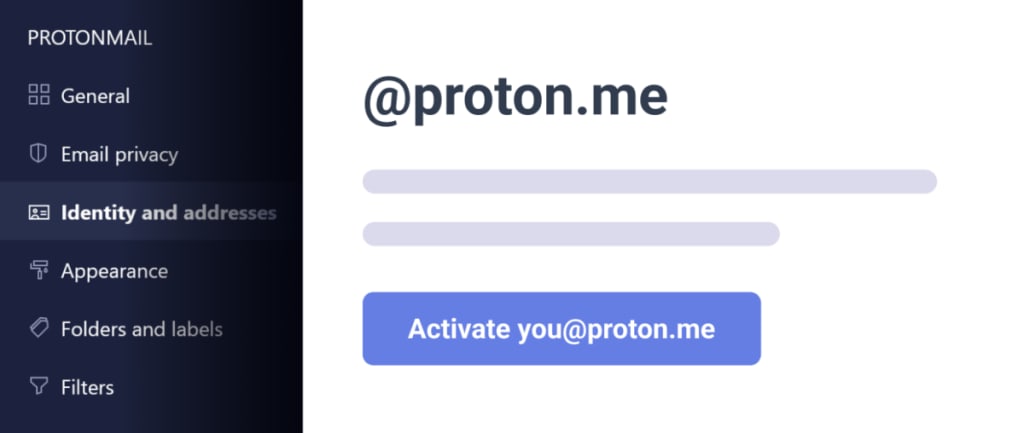Last updated: 29 April 2022 — We’re extending the deadline to activate a free @proton.me address until 8 June.
When we founded Proton Mail in 2014, we realized one of the best ways to help everyone protect their privacy was to make sending encrypted email as convenient as possible. This includes providing you with an email address that is easy to share with friends and family.
Today, we’re happy to introduce proton.me, an additional email domain you can use to send and receive email securely! A shorter email domain was one of the most requested features from the Proton 2022 survey, so we’re pleased to provide this option to you.
If you have a Proton Mail account, you’ll be able to activate a free @proton.me address in the coming days. That means if your current email address is john@protonmail.com, you can activate john@proton.me. Until 8 June, the @proton.me address associated with your username can be activated for free. After 8 June, you’ll still be able to activate your @proton.me address if you’re a paying Proton Mail subscriber. In any case, your @proton.me address will be reserved indefinitely for you as long as you keep your account active.
Activate your @proton.me address
As always, you can continue sending mail from your existing Proton Mail address(es). Your new @proton.me address will not count toward your address limit.
What is @proton.me?
As more people turn to Proton Mail to protect their privacy, we want to empower them to take control of their data. We added proton.me as an additional domain so that you can have multiple secure Proton Mail addresses, allowing you to choose which to share and with whom.
We like to think that @proton.me is like a code. You can tell your friends and family to “Proton me” a message or file so they know that whatever they send will be encrypted on the Proton network and only read by you.
You can use your new @proton.me address to register for online accounts, subscribe to newsletters, and send private messages to friends and family. All emails sent to your @proton.me address will land in your inbox as usual.
If you’d like an even shorter email address, our short domain @pm.me is also available for paying subscribers.
Activating your @proton.me address
i
You can activate your @proton.me address by logging in to your Proton Mail account on your web browser. Once you’re logged in:
- Click Settings → All settings at the top right and select Identity and addresses in the left sidebar.
- Activate your @proton.me address under the @proton.me section.
- You can set your @proton.me address as your default address for sending and receiving mail.
If you’re a paying Proton Mail subscriber, you can also create additional @proton.me addresses.
If you’re new to Proton Mail and you’d like your own @proton.me address, sign up for a free Proton Mail account(nova janela).
Thank you for being a member of the Proton community. We appreciate your support!






